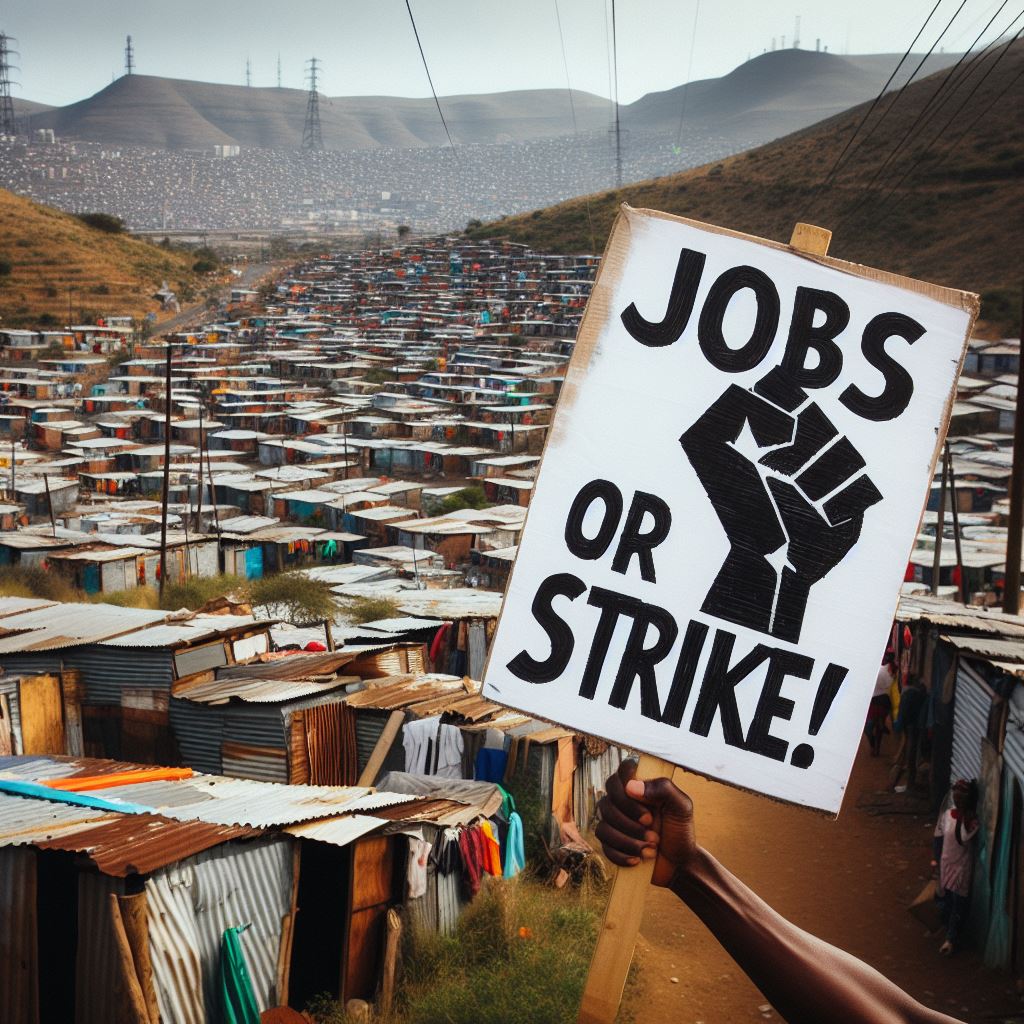South Africa, despite being one of the largest economies in Africa, faces several significant challenges that hinder its economic growth, development, and prosperity. From structural issues to external shocks, various factors contribute to the complexities of the South African economy. This article explores what is wrong with the economy of South Africa, the key problems facing the economy of South Africa, and examines their implications for the country’s future.

Persistent Unemployment Crisis
One of the most pressing issues plaguing the South African economy is the high and persistent unemployment rate. Despite efforts to address this challenge, unemployment remains stubbornly high, particularly among youth and vulnerable populations.
Implications:
- Social Unrest: High levels of unemployment contribute to social unrest, crime, and political instability, undermining social cohesion and public confidence in the government’s ability to address economic challenges.
- Economic Inequality: Unemployment exacerbates income inequality, as job opportunities remain limited, particularly for marginalized groups. The concentration of wealth and resources in the hands of a few exacerbates social tensions and undermines efforts to promote inclusive growth and development.
Structural Economic Weaknesses
South Africa’s economy is characterized by structural weaknesses, including low productivity, limited diversification, and a reliance on extractive industries. These structural challenges hinder the economy’s ability to generate sustainable growth and create employment opportunities.
Implications:
- Low Productivity: Low levels of productivity impede economic growth and competitiveness, limiting the economy’s ability to create jobs and improve living standards. Addressing productivity challenges requires investments in education, skills development, and technology adoption.
- Limited Diversification: The economy’s heavy reliance on sectors such as mining, agriculture, and manufacturing leaves it vulnerable to external shocks and fluctuations in commodity prices. Diversifying the economy into high-value-added industries such as technology, services, and innovation is essential for long-term sustainability.
Policy Uncertainty and Governance Issues
Policy uncertainty and governance challenges undermine investor confidence, deter investment, and hamper economic growth. Inconsistent policy implementation, corruption, and inefficiency in government institutions contribute to a lack of trust in the business environment.
Implications:
- Investment Deterrence: Policy uncertainty and governance issues deter domestic and foreign investment, limiting capital inflows, job creation, and economic expansion. Clarifying policy frameworks, enhancing transparency, and strengthening governance mechanisms are critical for fostering investor confidence and promoting sustainable economic growth.
- Brain Drain: The perception of political instability and governance challenges drives skilled professionals and entrepreneurs to emigrate, exacerbating skills shortages and hindering economic development. Retaining talent and fostering a conducive environment for innovation and entrepreneurship are essential for fostering economic resilience and competitiveness.
Inequality and Poverty
South Africa remains one of the most unequal societies globally, with significant disparities in income, wealth, and access to opportunities. Persistent poverty, particularly in rural and marginalized communities, exacerbates social tensions and undermines efforts to promote inclusive growth and development.
Implications:
- Social Cohesion: Rising inequality threatens social cohesion and stability, fueling social unrest, crime, and political polarization. Addressing inequality requires targeted interventions to promote inclusive economic growth, improve access to education, healthcare, and basic services, and empower marginalized communities.
- Human Capital Development: Poverty and inequality limit access to education, healthcare, and skills development opportunities, perpetuating intergenerational cycles of poverty and hindering social mobility. Investing in human capital development is essential for breaking the cycle of poverty and promoting equitable access to opportunities for all South Africans.
External Shocks and Vulnerabilities
South Africa’s economy is vulnerable to external shocks, including fluctuations in global commodity prices, geopolitical tensions, and natural disasters. These external factors pose risks to economic stability and growth, exacerbating existing challenges.
Implications:
- Economic Volatility: External shocks, such as fluctuations in commodity prices or disruptions in global trade, can lead to economic volatility, currency depreciation, and inflationary pressures. Building resilience to external shocks requires diversifying the economy, strengthening fiscal buffers, and enhancing risk management frameworks.
- Climate Change: Climate change poses significant risks to South Africa’s economy, particularly in sectors such as agriculture, water resources, and tourism. Mitigating the impact of climate change requires proactive adaptation measures, sustainable resource management practices, and investments in renewable energy and green infrastructure.
Conclusion
In conclusion, the economy of South Africa faces numerous challenges that hinder its growth, development, and prosperity. From high unemployment and structural weaknesses to policy uncertainty and inequality, addressing these challenges requires concerted efforts from the government, businesses, civil society, and international partners. By implementing sound economic policies, strengthening governance mechanisms, and investing in human capital and infrastructure, South Africa can overcome its economic challenges and unlock its full potential for sustainable and inclusive growth. However, addressing these issues will require political will, strategic planning, and collective action to build a brighter future for all South Africans.
